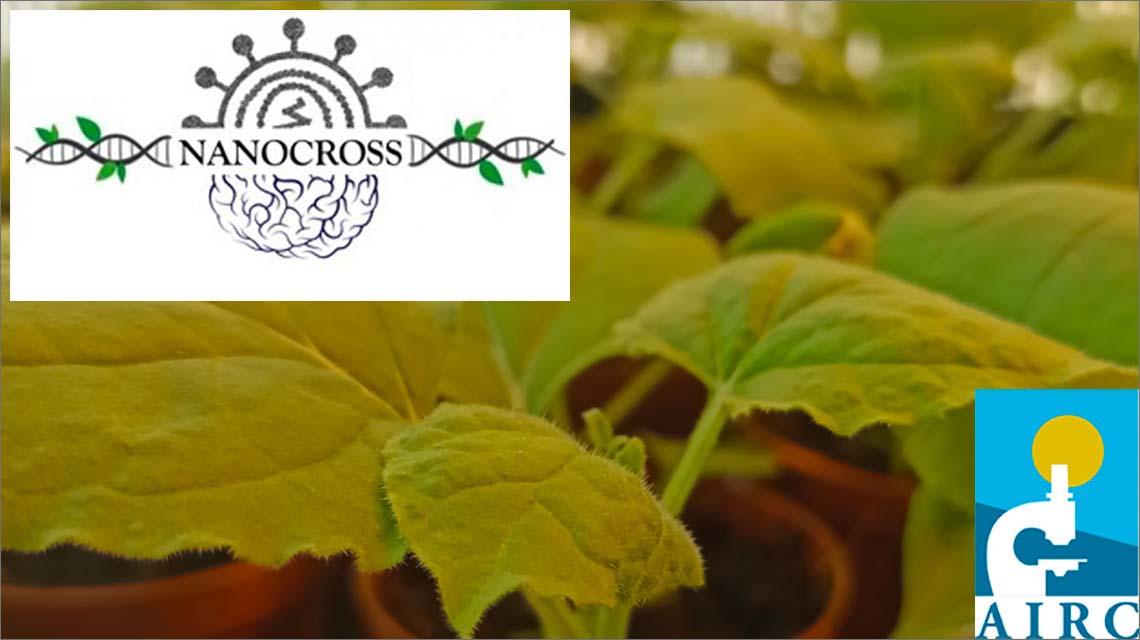Italian National Agency for New Technologies, Energy and Sustainable Economic Development

Health: Medulloblastoma, the results of an ENEA project supported by AIRC for a new therapeutic approach
A group of ENEA researchers has tested a new therapeutic approach for the treatment of medulloblastoma, the most frequent brain tumour in paediatric age, as part of the NANOCROSS project supported by the AIRC Foundation for Cancer Research. The results obtained, published in the International Journal of Molecular Sciences, are based on the use of engineered plant viruses as vehicles for the targeted administration of chemotherapy drugs, capable of selectively reaching the tumour, reducing drug doses and its side effects.
The activities - which also involved the University of Tuscia - involved a multidisciplinary team of researchers with more than 20 years' experience in the mechanisms regulating the onset and development of medulloblastoma and biotechnologists specialising in 'Plant Molecular Farming'. "To treat this type of solid tumour, with a tendency to metastasise and recur, conventional treatment includes a combination of surgery, radiotherapy and/or chemotherapy. These therapies can cause neurological damage and widespread side effects. The aim of our research was to evaluate in laboratory experiments a new therapeutic strategy aimed at limiting and reducing these effects through an integrated and biotechnological approach,' stresses Mariateresa Mancuso, head of ENEA's Biomedical Technologies Laboratory and Principal Investigator of the NANOCROSS project ('Plant virus nanoparticles for blood-brain barrier crossing and medulloblastoma targeting', AIRC IG 2017-2023).
A tomato virus, harmless to humans, has been engineered so that it can be used as a vehicle for targeted drug delivery directed selectively and non-invasively towards medulloblastoma cancer cells. The method proved very effective in reducing the viability of tumour cells with reduced doses of chemotherapy compared to those required to achieve the same effect with the drug in free form.
"Plant viruses engineered in this way are harmless, safe, biocompatible and biodegradable, and can be produced quickly and cheaply using plants as biofactories. Because of these qualities, they proved to be particularly suitable candidates for the purpose of the research,' points out Chiara Lico of the ENEA Biotechnology Laboratory. "For the large-scale production of plant viral nanoparticles suitably designed to cross the blood-brain barrier and 'target' the medulloblastoma, Nicotiana benthamiana plants, a particular type of tobacco plant, were used."
'Overall, the results achieved, which have been supplemented with analyses of molecular computer simulations, are a first step towards new perspectives for the use of this targeted drug delivery platform, which could help to drastically reduce the side effects, both acute and late, of anti-cancer therapies for the treatment of medulloblastoma, but also other types of solid tumours,' Mariateresa Mancuso concludes.
For more information:
Mariateresa Mancuso, ENEA - Head of the Biomedical Technologies Laboratory,
International Journal of Molecular Sciences 'Tomato Bushy Stunt Virus Nanoparticles as a Platform for Drug Delivery to Shh-Dependent Medulloblastoma'. Lico C, Tanno B, Marchetti L, Novelli F, Giardullo P, Arcangeli C, Pazzaglia S, Podda MS, Santi L, Bernini R, Baschieri S, Mancuso M. Int J Mol Sci. 2021;22(19):10523. doi: 10.3390/ijms221910523
Link to the publication: https://www.mdpi.com/1422-0067/22/19/10523
Link research gate:
https://www.researchgate.net/publication/354940340_Tomato_Bushy_Stunt_Virus_Nanoparticles_as_a_Platform_for_Drug_Delivery_to_Shh-Dependent_Medulloblastoma
